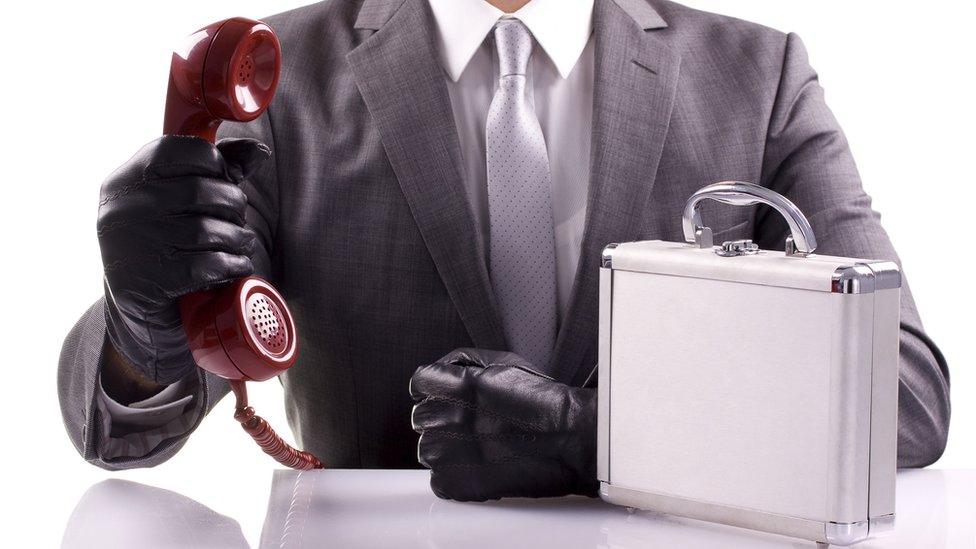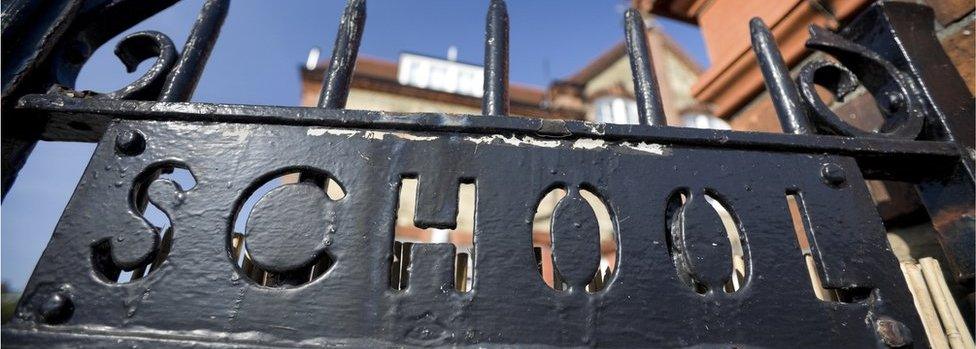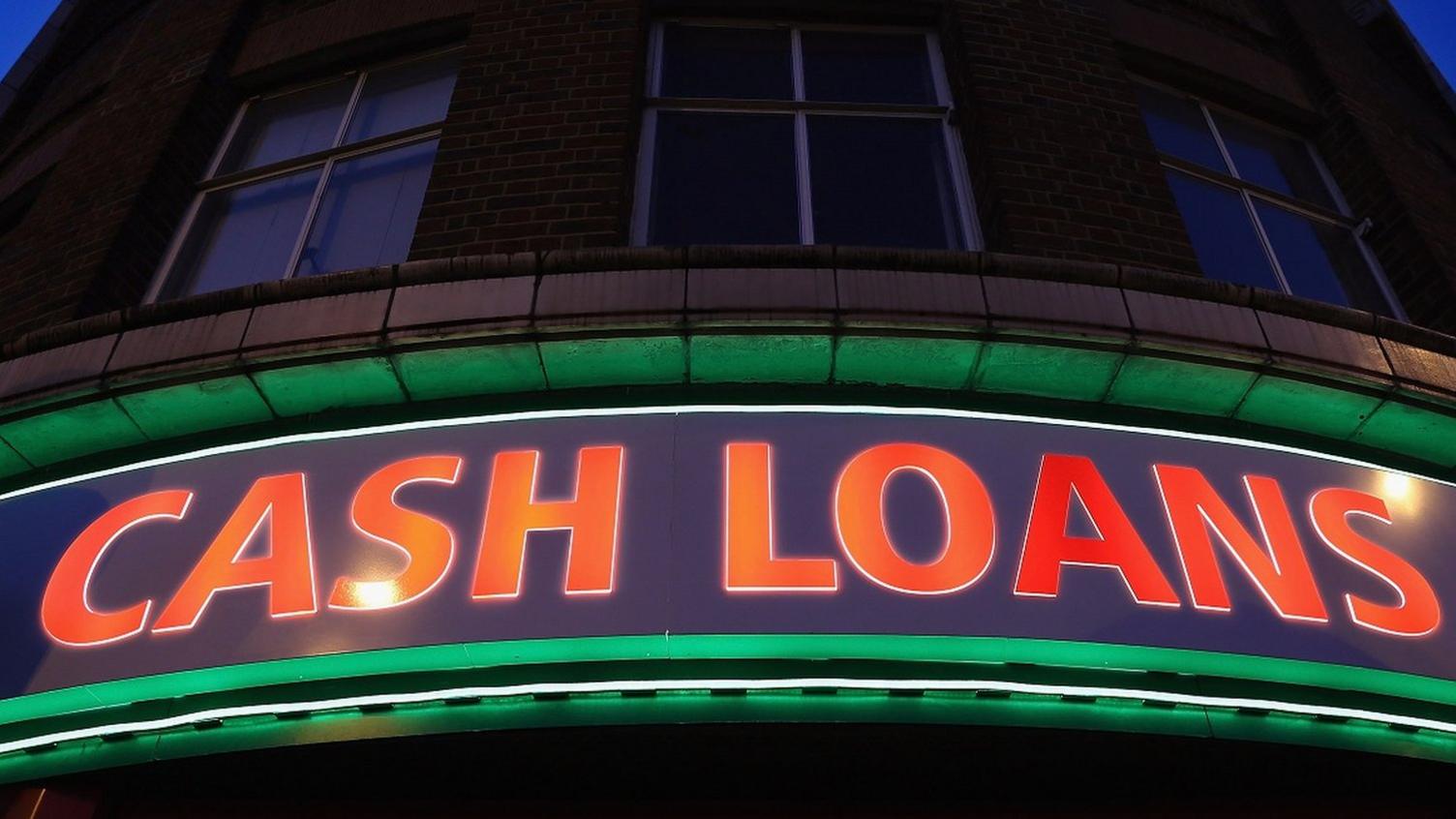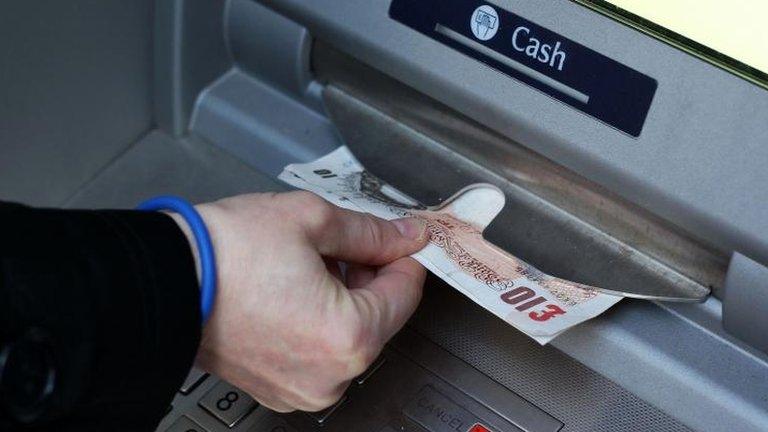Loan sharks 'hang around the school gates'
- Published
- comments

Loan sharks have stood at school gates handing out cards to children as they leave, suggesting mums call them if they need new trainers.
Illegal money lenders have also stationed themselves outside food banks, in casinos, or outside post offices to wait for pensioners.
The reports come in a new review by the Financial Conduct Authority aiming to shed light on criminals' activities.
It concluded that borrowing from these people is "a way of life" for many.
However, the FCA said there was no evidence of a particular rise in this black market.
Fears had been raised that a crackdown on payday lenders, who are regulated and licensed by the City watchdog, could lead to some people being turned down for loans following stricter affordability checks and turn to loan sharks instead.


True stories
These are some of the stories told by debt advisors and others during the FCA investigation, external:
"One lender coerced a borrower who owed him money into setting up a cannabis farm in his spare room. They put the risk onto their victims and control them through debt and fear."
"Pensioners borrowed small sums week to week, paying back the money to the loan shark at the post office when they get their pension. Sometimes the lender held the pensioners' cards or passbooks between pension payment days."
"In one estate loan sharks were hanging around the school gate, handing out their details on cards to the children as they left school, telling them to get their mums to ring them if they wanted new trainers."
"One young woman was punched in the face at a house party in front of a room full of her peers as punishment for non-payment. No-one would report the attacker even though many people saw what happened and who had done it."

The common thread among borrowers, according to the report, is that their income has fallen short and they need money urgently.
Many go to under-the-table lenders at work, with numerous reports of this lending going on in hospitals or in rural areas.
Lenders, when they tell people what they charge, expect to be paid interest of £167 on a £250 loan. This is an extortionate rate of interest, but the FCA says that some illegal money lenders actually undercut the regulated money lending industry.
Many illegal lenders are trying to pass on stolen cash as loans.
Failing to repay can have serious consequences for borrowers. Non-payers can expect to be "threatened or exposed" on social media, according to the report.
Others have been coerced into prostitution and drug running, or fear the safety of their family owing to retribution.

The FCA is conducting an inquiry into high-cost credit, and as part of this has reviewed the effect of stricter rules facing payday lenders, such as checking borrowers' ability to repay.
It has stuck to its estimates that 5% of people turned down for a loan with regulated lenders would consider going to loan sharks.
The regulator has already suggested that charges for unarranged bank overdrafts could be banned.
It has also highlighted concerns about the rent-to-own market, typically used by consumers to buy fridges, freezers and televisions.
Figures published by the Bank of England on Wednesday show that unsecured borrowing through loans, overdrafts and credit cards is still growing at 9.6% a year, but this rate had slowed slightly during the summer.
- Published1 February 2016

- Published21 July 2015

- Published26 May 2017

- Published31 July 2017
